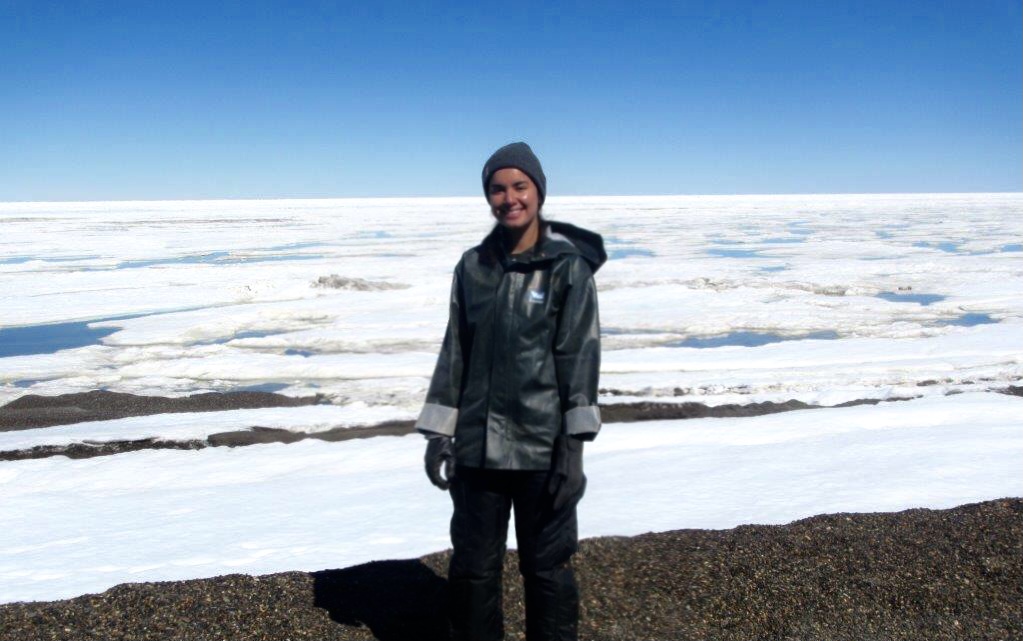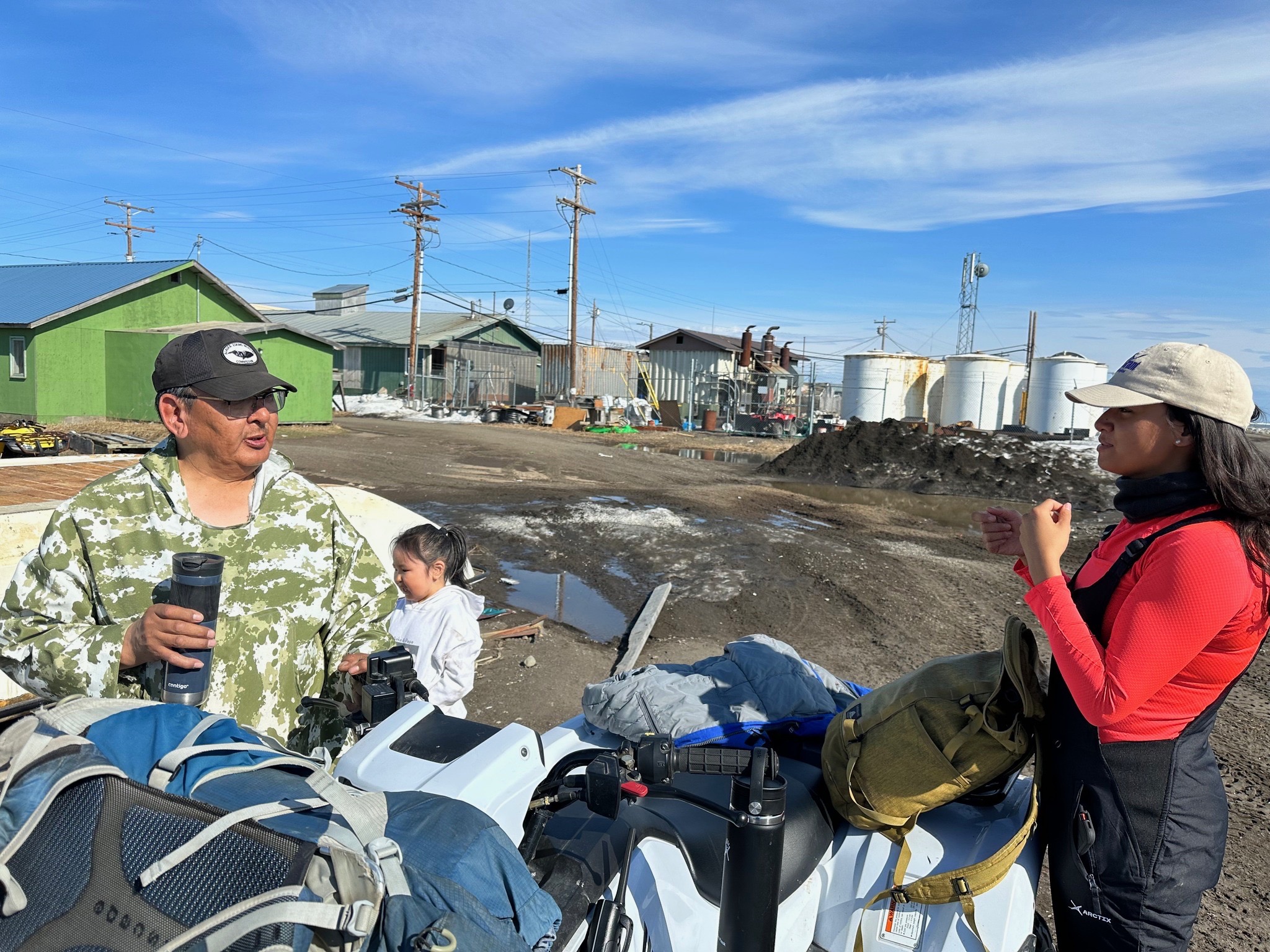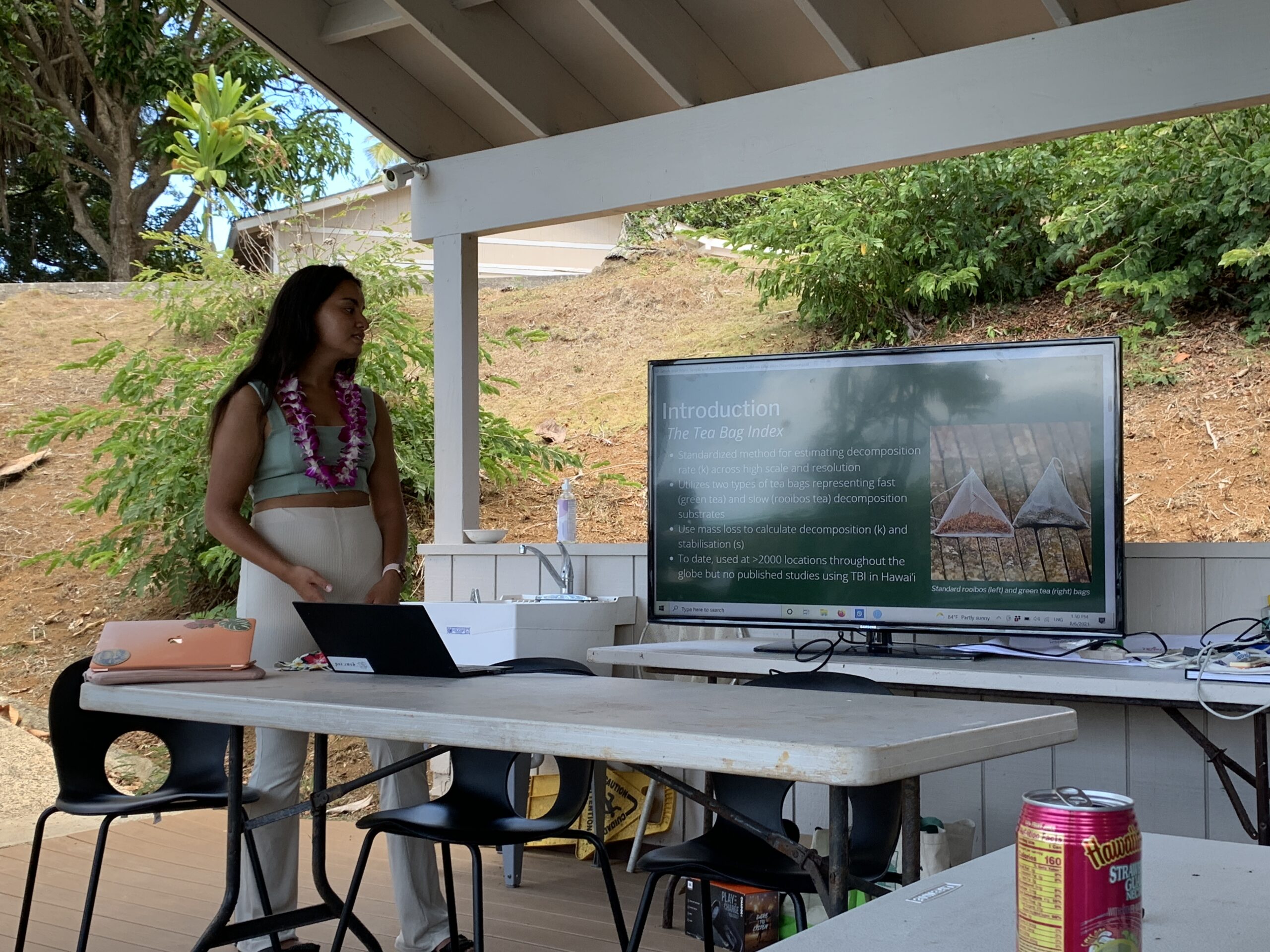
My name is ‘Ana Fonongava’inga Stringer, and I recently completed my role as the Cross-Pacific Indigenous Aquaculture Network (IACN) student assistant. I am currently a graduate student at the University of Washington, pursuing a master’s degree at the School of Marine and Environmental Affairs (SMEA). I was born in Seattle, Washington and have lived in many incredible places, however I have strong roots in Tonga, my mother’s homeland in the South Pacific. Growing up in Utqiagvik, Alaska shaped my deep connection to the land and sea, and expanded my ties across the Pacific.
Living in a traditional Iñupiat subsistence community, I witnessed the inseparable relationship between people and the environment. This experience instilled in me an appreciation for the importance of sustainable practices and cultural preservation. It also sparked my interest in marine affairs and Indigenous aquaculture, as I recognized the vital role of the ocean in the livelihoods and traditions of Indigenous peoples.

‘Ana working on her graduate research in Kivalina, AK.
As the 2022-23 graduate student assistant for the IACN, I had the privilege of supporting the network’s efforts to strengthen ties between Indigenous aquaculture practitioners across the Pacific. The main project throughout my time with the IACN involved planning the Salish Summit, a gathering that fosters knowledge sharing and collaboration among Indigenous communities. I also helped facilitate virtual knowledge exchanges throughout the year, and an in-person clam garden workshop with Northwest Tribes.
Prior to joining SMEA, I completed a double major in Earth & Environmental Sciences and Environmental Sociology at Vanderbilt University. This interdisciplinary education allowed me to explore the impacts of climate change on society, particularly in relation to marine hunting opportunities in the Arctic. I firmly believe in community-oriented research and have been fortunate to engage with local communities, such as through my internship at the North Slope Borough Department of Wildlife Management.

‘Ana presenting during her internship in Hawai’i at the He’eia NERR.
During my time at SMEA, I am conducting research for my thesis, which focuses on the historical and future climatic impacts on bowhead hunting opportunities in Kivalina, Alaska. This research will contribute to our understanding of climate change’s effects on Indigenous communities’ traditional ways of life and inform adaptation strategies.
Outside of school, I have a passion for kickboxing, which not only helps me stay active but also serves as a stress-reliever. I also treasure spending time with my large extended family in Seattle, consisting of over 50 cousins, nieces, and nephews.
My journey in marine affairs and Indigenous aquaculture is driven by a deep sense of responsibility to protect the ocean and preserve the connections we have with it as Pacific Islanders. Through my work with the IACN as well as my research endeavors, I hope to contribute to the revitalization of Indigenous marine practices and ensure a sustainable future for generations to come.
Olivia Horwedel is the current Communications Fellow for the Cross-Pacific Indigenous Aquaculture Collaborative Network.
